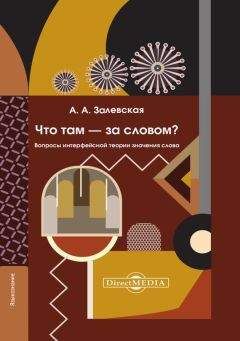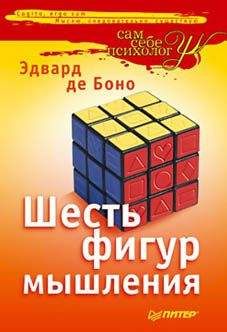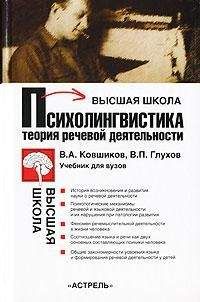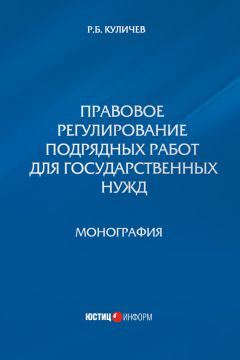Ознакомительная версия.
241. Щерба Л. В .О трояком аспекте языковых явлений и об эксперименте в языкознании // Щерба Л. В .Языковая система и речевая деятельность. – Л.: Наука, 1974. – С. 24–39.
242. Эко У. Отсутствующая структура. Введение в семиологию. – ТОО ТК «Петрополис», 1998. – 432 с.
243. Эпштейн В. Л .Введение в гипертекст и гипертекстовые системы, 1991. – [Электронный ресурс] / Режим доступа: http:// www.ipu.rssi.ru/publ/epstn.htm (дата обращения: 27.01.2008).
244. Юрченко В. С. Уровни языковой семантики // Дом бытия: Альманах по антропологической лингвистике. – Саратов, 1995. – С. 29–39.
245. Ягунова Е. В .Вариативность стратегий восприятия звучащего текста (экспериментальное исследование на материале русскоязычных текстов разных функциональных стилей): монография. – Пермь: Перм. гос. ун-т; СПбГУ, 2008. – 395 с.
246. Ягунова Е. В .Вариативность стратегий восприятия звучащего текста (экспериментальное исследование на материале русскоязычных текстов разных функциональных стилей): автореф. дис. … докт. филол. наук: 10.02.19. – М.: Моск. гос. ун-т, 2009. – 39 с.
247. Aitchison, J. Words in the Mind: An Introduction to the Mental Lexicon. – 3rd ed. – Blackwell Publishing, 2003. – 314 p.
248. Barsalou, L.W. Perceptual symbol systems // Behavioral and Brain Sciences. – 1999. – Vol. 22. – Pp. 577–660.
249. Barsalou, L.W. The human conceptual system // The Cambridge Handbook of Psycholinguistics. – Cambridge, 2012. – Pp. 239–258.
250. Boroditski, L. How the languages we speak shape the ways we think // The Cambridge Handbook of Psycholinguistics. – Cambridge, 2012. – Pp. 615–632.
251. Bush, V. As We May Think // Atlantic Monthly. – 1945. – № 7. – Pp. 101–108.
252. Cowley, S.J. The cognitive dynamics of distributed language: Editorial // Language Sciences (2007), doi.10.1016/j.langsci.2007.01.002
253. Damasio, A. Concepts in the brain // Mind and Language. – 1989. – Vol.4. – № 1–2. – Pp. 24–28.
254. Damasio, A. Descartes’ error: Emotion, reason, and the human brain. – New York: Avon Books, 1995. – 313 p.
255. Damasio, A. The feeling of what happens: Body and emotion in the making of consciousness. – New York etc.: Harcourt Brace & Co, 1999. – 386 p.
256. Damasio, A. Looking for Spinoza: joy, sorrow, and the feeling brain. – Or-lando; Austin; New York, etc.: Harcourt, Inc., 2003. – 356 p.
257. Dunbar, G. The cognitive lexicon. – Tübingen: Narr, 1991.
258. Eco U. Kant and the Platypus. Essays on Language and Cognition. – San Diego; New York; London: Harcourt, Inc., 2000. – 464 p.
259. Eco, U. The Mysterious Flame of Queen Loana. – London: Vintage Books, 2006. – 458 p.
260. Elman, J.L. An alternative view of the mental lexicon // Trends in Cognitive Sciences. 2004. – Vol. 8. – Pp. 301–306.
261. Evans, V. Lexical concepts, cognitive models and meaning construction // Cognitive Linguistics, 2006. – Vol. 17–4. – Pp. 491–514.
262. Fivush, R. Scripts and categories: interrelationships in development // Concepts and conceptual development / Ed. by U. Neisser. – Cambridge etc.: Cambridge University Press, 1987. – Pp. 234–254.
263. Garman M. Psycholinguistics. – Cambridge etc.: Cambridge University Press, 1990.
264. Gernsbacher M.A. (Ed.). Handbook of psycholinguistics. San Diego; New York; Boston etc.: Academic Press, 1994. – 1174 p.
265. Hardy C. Networks of Meaning: A Bridge between Mind and Matter. – Westport, Connecticut; London: Praeger, 1998. – 217 p.
266. Hellevig, J. A Biological Philosophy. Vol. I: The Case Against Noam Chomsky; Vol. II: Mental Processing. – Helsinki, Finland: Russia Advisory Group Oy, 2010. – 576 p.
267. Javier, R.A. The bilingual mind: Thinking, feeling abd speaking in two languages. – Springer, 2007. – 154 p.
268. Kiss G., Armstrong C. Milroy R. The Associative Thesaurus of English. – Edinburgh: University of Edinburgh, MRC Speech and Communication Unit, 1972. – 1539 p.
269. Klyukanov, I.E. Principles of Intercultural Communication. – Boston; New York; San Francisco, etc., 2005. – 290 p.
270. Kormos, J. Speech production and second language acquisition. – Mahwah, NJ: Lawrence Erlbaum Associates, 2006. – 221 p.
271. Kravchenko, A.V. Biology of Cognition and Linguistic Analysis/ From Non-Realist Linguistics to a Realistic Language Science. – Frankfurt am Main; Berlin; Bern, etc.: Peter Lang, 2008. – 304 p.
272. Maturana, H. Metadesign: Human beings versus machines, or machines as instruments of human designs? [Электронный ресурс] / Режим доступа: http://www.inteco.cl/articulos/metadesign _partel.htm
273. Miller, G.A. On knowing a word [Review] // Annual Review of Psychology. – 1999. – Vol. 50. – Pp.1–19.
274. Mirêlis, M.T. – M. Exploring the adaptive structure of the mental lexicon: PhD. – Edinburgh: University of Edinburgh, October 2004. – 277 p.
275. Nelson, T.N. A file structure for the complex, the changing, and the indeterminate // ACM 20th National Conference: Proceedings (Clevelend, Ohio, 1965). – Pp. 84–100.
276. Ruthrof, H. Semantics and the Body: Meaning from Frege to the Postmodern. – Toronto: University of Toronto Press, 1997. – 321 p.
277. Ruthrof, H. The Body in Language. – London; New York: Cassell, 2000. – 193 p.
278. Spirvey, M.J., McRae, K. & Joanisse, M.F. (Eds.) The Cambridge Handbook of Psycholinguistics. – Cambridge; New York; Melbourne etc.: Cambridge University Press, 2012. – 745 p.
279. Stemberger, J.P. The lexicon in a model of language production. – New York: Garland Publishing, Inc., 1985.
280. Turvey, M.T. & Moreno, M.A. Physical metaphors for the mental lexicon // The Mental Lexicon. – 2006. – Vol. 1. – № 1. – Pp.7–33.
281. Violi P. Meaning and Experience. – Bloomington: Indiana University Press, 2001. – 291 p.
282. Zalevskaya A.A. On the associative structure of memory // Short communications prepared for the XIXth International Psychological Congress. – Moscow: Psychological Society of the USSR, 1969. – P.156–157.
283. Zalevskaya A.A. A psycholinguistic approach to the study of mechanisms of free word association // Abstract Guide: XXth International Congress of Psychology (August 13–19, 1972, Tokyo, Japan). – Tokyo, 1972. – P. 400.
284. Zalevskaya A.A. An experimental study of lexical organization // XXIe Congrès Internatinal de Psychologie: résumés, Paris 18–25 juillet, 1976 / Société Français de Psychologie. – Paris, 1976. – P. 44.
285. Zalevskaya A.A. Verbal associations in different cultural settings // Wertch, J. (Ed.) Recent Trends in Soviet Psycholinguistics. – New York: Sharpe, 1977а. – Pp. 96–102.
286. Zalevskaya A.A. Verbal associations in different cultural settings // Soviet Psychology: A Journal of Translations. – New York, 1977b. – Vol. XV, № 2. – Pp. 46–52.
287. Zalevskaya A. Interfacial Theory of Word Meaning: Psycholinguistic Approach. – London, UK: IASHE (International Academy of Science and Higher Education), 2014. – 180 pp.
Использованные словари
1. АРСЛС: Англо-русский словарь по лингвистике и семиотике / под ред. А. Н. Баранова, Д. О. Добровольского. – М.: Помовский и партнеры, 1996. – 656 с.
2. БПС: Большой психологический словарь / сост. и общ. ред. Б. Мещеряков, В. Зинченко. – СПб.: ПРАЙМ-ЕВРОЗНАК, 2004. – 672 с.
3. Васильева Н.В., Виноградов В.А., Шахнарович А. М. Краткий словарь лингвистических терминов. – М.: Рус. яз., 1995. – 175 с.
4. Даль В. И .Толковый словарь живого великорусского языка. – Том II. – М.: Гос. изд-во иностранных и национальных словарей, 1956. – 779 с.
5. Дрот В.Л., Новиков Ф. А .Толковый словарь современной компьютерной лексики [Электронный ресурс] / Режим доступа: http://www.kniga. combooks/preview_txt.asp?sku=ebooks 3246 89 (18.06.2013)
6. ИНФОРМАТИКА в 7 томах. – Том 3. Концептуальная информатика (Толковый словарь по информатике) [Электронный ресурс] / А. А. Красилов / Режим доступа: http://intellsyst.ru/informatika-v-7-tomax-tom-3konceptualnaya-informatika-tolkovyj-slovar-poinformatike.html (12.11.2013)
7. КСКТ: Краткий словарь когнитивных терминов / под общ. ред. Е. С. Кубряковой. – М.: Изд-во Моск. гос. ун-та, 1996. – 197 с.
8. Крысин Л. П. Толковый словарь иноязычных слов.– М.: Русский язык, 1998. – 848 с.
9. ЛЭС: Лингвистический энциклопедический словарь / главн. ред. В. Н. Ярцева. – М.: «Советская энциклопедия», 1990. – 685 с.
10. НПС: Новейший психологический словарь / В. Б. Шапарь, В. Е. Россоха, О. В. Шапарь. – 2-е изд. – Ростов н/Д.: Феникс, 2006. – 808 с.
11. НФС: Новейший философский словарь / сост. и главн. науч. ред. А. А. Грицанов. – 3-е изд. испр. – Минск: Книжный дом, 2003. – 1280 с.
12. Ожегов С. И .Словарь русского языка. – М.: Изд-во «Советская энциклопедия», 1970. – 900 с.
13. ПЛЭС – Психологический лексикон. Энциклопедический словарь в 6 томах [Электронный ресурс 2005, PDF, RUS] / Карпенко Л., Петровский А. (Ред.). – История психологии в лицах. Персоналии / Режим доступа: http:// rutracker.org/forum/viewtopic.php?t=3798577 (15.11.2013)
14. ФЭС: Философский энциклопедический словарь. – М.: ИНФРА-М, 2003. – 576 с.
15. TAHDEL: The American Heritage Dictionary of the English Language. – 3d ed. – Boston; New York: Houghton Mifflin Company, 1996. – 2140 p.
16.Webster, N. An American Dictionary of the English Language. – Springfield, Mass.: Published by G. and Ch. Merriam, 1854. – 1367 p.
Цитированные электронные источники
1. http://dictionary.reference.com/browse/ method-ology (16.12.2013)
2. http://en.wikipedia. org/wiki/Methodology (16.12.2013)
3. http://www.merriam-webster.com/ dictionary methodology (16.12.2013)
4. poiskslov.com/word/лексикон (18.12.2013)
5. ria.ru/nsk/20130908/961584526.html (18.12.2013)
6. ru.wikipedia.org/wiki/лексикон_(программа) (18.12.2013)
7. ru.wiktionary.org/wiki/лексикон (18.12.2013)
Экспериментальные материалы на разных языках
1. Ассоциативные нормы испанского и русского языков / М. Санчес Пунг, Ю. Н. Караулов, Г. А. Черкасова. – М.; Мадрид, 2001.
2. Ассоциативные нормы русского и немецкого языков / Н. В. Уфимцева, И. А. Стернин, Х. Эккерт, В. И. Милехина, В. М. Топорова. – М.–Воронеж: Изд-во ИСТОКИ, 2004. – 130 с.
3. Ассоциативный словарь употребительной русской лексики: 1080 стимулов / науч. ред. А. В. Рудакова, И. А. Стернин. – Воронеж: Изд-во «Истоки», 2011. – 187 с.
4. Ассоциативный фразеологический словарь русского языка / Д. О. Добровольский, Ю. Н. Караулов. – М.: Помовский и партнеры, 1994. – 116 с.
5. Береснева Н.И., Дубровская Л.А., Овчинникова И.Г., Е. Б. Пенягина. Ассоциации детей от шести до десяти лет (ассоциативное значение слова в онтогенезе) – Пермь: Изд-во Перм. ун-та, 1995. – 256 с.
6. Бутакова Л .О.Материалы к ассоциативно-семантическому словарю жителей города Омска. – Омск: «Вариант-Омск», 2012. – 128 с.
7. Бутенко Н.П. Словник асоцiативних норм украïнськоï мови. – Львiв: Вища школа, 1979. – 120 с.
Ознакомительная версия.





